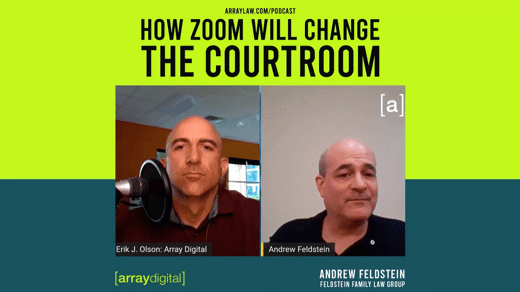Hi, I am Andrew Feldstein of Feldstein Family Law Group. Today I will be speaking about settlement meetings.
Typically settlement meetings consist of both parties and their lawyers meeting face to face, in hopes of resolving their matrimonial issues outside of court. Settlement meetings will usually not take place unless both parties have lawyers – if one party is unrepresented and does not have their own lawyer, such a meeting is unlikely to take place.
The first opportunity for a settlement meeting is usually after the exchange of each parties’ financial statements and other supporting materials. A settlement meeting can alternatively be scheduled right before the commencement of a trial. Faced with the daunting prospect of a long and emotionally draining trial, clients are often inclined to try and settle their mattes outside of court.
A settlement agreement crafted by both parties and drafted by their lawyers is almost always more likely to be mutually beneficial and satisfactory than one ordered by a court.
Settlement meetings will usually be hosted by either one of the lawyers, in one of their office boardrooms. Generally, these meetings are most successful when parties are able to sit in the same room, and respectfully discuss matters together. In cases where parties are unable to be in one room, each will be seated in a different room and the lawyers will shuffle back and forth. This however, can take longer and be counterproductive.
Additional parties, family members, friends or new partners, are generally not permitted to attend these meetings, unless there are extenuating circumstances that require an interpreter or additional support.
Everything disclosed and agreed to in a settlement meeting is confidential and cannot be discussed with parties not present at the meeting. The information shared during the meeting also cannot be used in court or in court materials.
A settlement meeting can be scheduled to last as long as the lawyers and parties choose. On average, such a meeting will last two to three hours; and this generally includes time before and after the actual meeting for each lawyer to meet with their respective client in order to prepare and debrief.
Prior to the meeting, one of the lawyers will draft a meeting agenda, and distribute it to opposing counsel and their client. This serves to set goals for each meeting, and helps to keep discussions directed and focused.
At the meeting, lawyers will usually start with the most important, pressing or critical issue. In the interest of maximizing collaboration, more controversial issues may be set aside if parties reach deadlock. If there are children involved in the dispute, it often makes most sense to begin there as much else will be determined by where and with whom the children primarily reside.
At the end of the first meeting, if parties were unable to reach settlement but want to continue to discuss issues outside of court, another meeting can be scheduled. There is no limit on how many such meetings can take place; however, several unproductive meetings could be costly for both parties. Regardless, settlement is always preferable as it is cheaper and less time consuming than court, and so a settlement meeting should almost always be held prior to the initiation of any court proceedings.
If and when settlement is reached, the lawyers will then draft an agreement pursuant to the terms and conditions agreed to at the meetings.
Unlike mediation or collaborative family law, settlement meetings do not promote reconciliation or negotiation of a workable way of moving forward and living apart. As such, settlement meetings are not to be confused with alternative dispute resolution process.
I hope you found this video informative and helpful. For additional information on settlement meetings, or for general assistance with your family law matters, please visit our website or call us at 905-581-7222 to schedule an initial consultation with one of our lawyers.
Thank you for watching.



